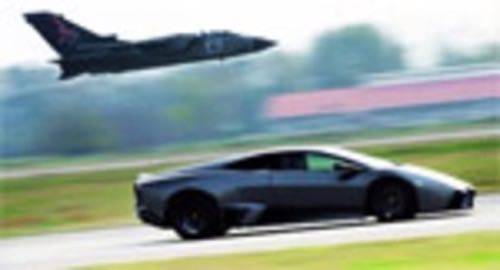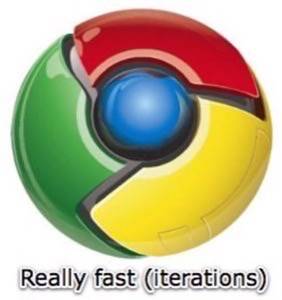This weekend, venture capitalist and avid blogger Fred Wilson pointed out an interesting blog post written by Stack Overflow co-founder Jeff Atwood. In the article, Atwood explains how his company takes advice from Charles de Mar – a character in the 1985 movie Better Off Dead – who rather bluntly tells a first time skier to “go that way, really fast.” Atwood says his company has focused mainly on speed, and believes speed of iteration is more valuable than quality.

“Google went from nothing, no web browser at all, to best-of-breed in under two years. Meanwhile, Internet Explorer took longer than the entire development period of Chrome to go from version 7 to version 8.”
– Jeff Atwood
Atwood discusses a law developed by a former Air Force colonel who researched 50’s-era aerial dog-fights. Colonel John Boyd found that even though certain planes were faster and more maneuverable, larger and slower planes with newer functions (like a hydraulic flight stick) could defeat them.
“Boyd decided that the primary determinant to winning dogfights was not observing, orienting, planning, or acting better,” says an essay which Atwood quotes. “The primary determinant to winning dogfights was observing, orienting, planning, and acting faster. In other words, how quickly one could iterate. Speed of iteration, Boyd suggested, beats quality of iteration.”
Atwood, whose company has taken this mantra to heart, also uses Google projects as an example of fast and furious iteration beating slow and calculated.
“Google went from nothing, no web browser at all, to best-of-breed in under two years. Meanwhile, Internet Explorer took longer than the entire development period of Chrome to go from version 7 to version 8,” says Atwood. “And by the time Internet Explorer 9 ships […] it will be completely outclassed at launch by both Firefox and Chrome.”

While Google certainly has the resources to quickly iterate with such a large project, its practices could be carried over into the small business and startup ecosystem. The idea of Boyd’s Law sounds an awful lot like the lean startup movement to me. Lean startups are all about producing a minimum viable product at “low burn” and continually iterating the product based on user feedback – an idea Boyd might get behind.
But is speed always the best option for a startup? It would seem that there should be some compromise between speed and quality. You don’t want to iterate so fast as to keep users from growing accustomed to changes or tactics that aren’t working at first. And speed seems trivial if the product you are putting out has little quality.
What do you think? Is winning the race about being speedy and maneuverable? Or is there a middle ground between break-neck speed and tortoise-paced caution? Let us know your thoughts on speed and quality in the comments below!

















